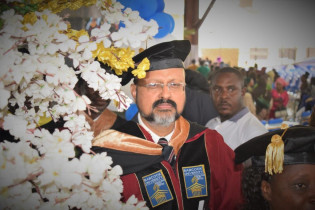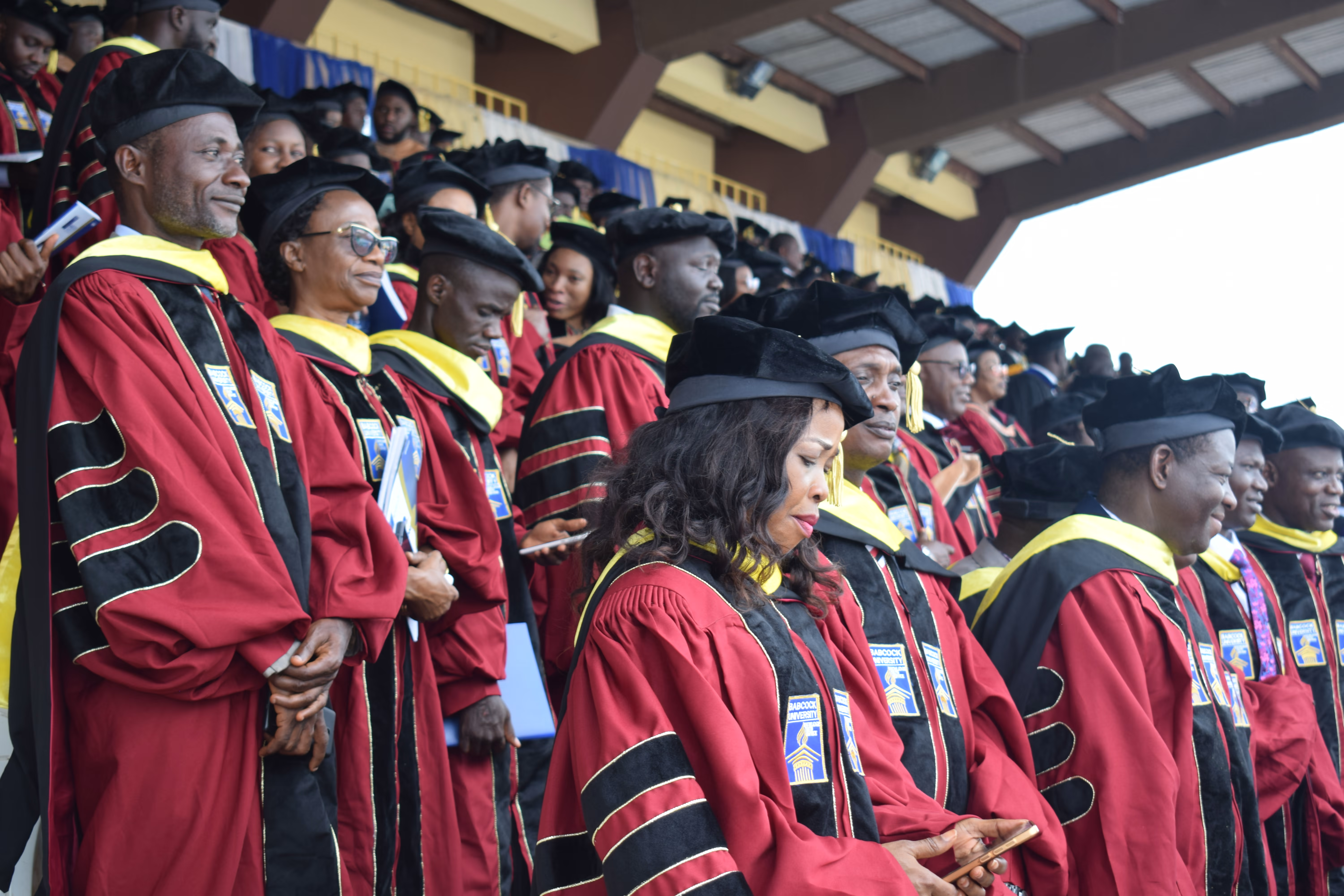
More About this Program
Objectives of the Programme
The goals of the computer department are to prepare students for graduate training in some specialized area of computer science, to prepare students for jobs in industry, business or government; and to provide support courses for students in engineering, mathematics and other fields requiring computing skills.
Upon successful completion of the programme, students would be able to:
· Demonstrate a broad knowledge of Computer Science which includes data structures, operating systems, computer programming skills, computer organization, algorithm design, and automata theory.
· Gain a substantial knowledge of one of the following Computer Science
specialties: Database, Networking, Artificial Intelligence, Information Security, Computer Engineering.
· Demonstrate the ability to recognize, design and implement efficient software solutions to problems.
· Demonstrate knowledge and understanding of professional ethics and responsible behavior.
· Become successful professionals able to gain Employment and/or to be accepted into a Computer Science Ph.D. program
Graduation Requirements
The M.Sc. (Computer Science) programme is designed to cover a period of 3 semesters of academic work. The major modes of lecture delivery include the following: Direct classroom teacher/student contact, library assignments and material searches, seminar presentations, tutorials and group assignment.
To obtain M.Sc. Computer Science degree, a candidate must take and pass a minimum of 49 units of courses made up as follows:
List of Courses for MSc in Computer Science
|
COURSE CODE |
COURSE TITLE |
1st |
2nd |
3rd |
|
|
GENERAL COURSES |
|
||
|
GEDS 801 |
Religion, Faith and Morality |
2 |
|
|
|
GEDS 802 |
Statistics |
|
2 |
|
|
|
CORE COURSES |
|
||
|
COSC 800 |
Christian Ethics in Computing |
|
3 |
|
|
COSC 801 |
Advanced Computer Architecture |
3 |
|
|
|
COSC 802 |
Internet Systems |
|
3 |
|
|
COSC 811 |
Advanced Computer Networks |
3 |
|
|
|
COSC 812 |
Design and Analysis of Algorithms |
|
3 |
|
|
COSC 821 |
Advanced Programming Techniques |
3 |
|
|
|
COSC 822 |
Research Methods in Computer Science |
|
3 |
|
|
COSC 8-- |
Specialized Elective Courses* |
9 |
6 |
|
|
COSC 870 |
Research Seminar |
|
|
3 |
|
COSC 890 |
Dissertation |
|
|
6 |
|
|
TOTAL = 49 Credits |
20 |
20 |
9 |
* SPECIAL NOTES:
- Each student is to take three (3) elective courses in the first semester and two (2) elective courses in the second semester; five (5) elective courses in all.
- Each student must take a maximum of three (3) elective courses from the track that aligns with his/her specialization. The other two (2) elective courses are to be picked from two other specialization tracks that complement the scope of the student’s dissertation, as well as for crossbreeding purposes. Consult Programme Coordinator and HoD.
- The track from which a student selects the most elective course credits MUST be the specialization specified on his/her admission letter.
- It is required that the dissertation of the student should be written in line with the chosen area of specialization.
Visit the host department
Admissions Requirements
(a) An applicant for admission to a course of study leading to the award of Master’s degree in Computer Science of the University shall be:
(i) A graduate of Babcock University or its equivalents in Computer Science or Information Technology related discipline; or
ii) A graduate of any other tertiary institution approved by appropriate agencies of government in related disciplines.
iii) An applicant who holds a recognized qualification approved by senate of the University.
iv) A graduate of Babcock University’s Postgraduate Diploma (PGD) in Computer Science with a minimum of 3.0/5.0 CGPA is eligible for admission to the MSc Computer Science programme.
(b) An applicant for Master’s degree programme in Computer Science shall normally possess not lower than Second Class Lower Division Honours degree with a CGPA of 3.0/5.0 to be eligible for admission.
Notwithstanding the regulation (a) above, the Department may require an applicant to undergo such tests as may be prescribed by the Postgraduate school or take such prerequisite course(s) and pass such examination as shall be prescribed.
Qualifying Examination
The candidates seeking admission shall be made to procure admission forms and subjected to a qualifying examination. Subject to good performance of the candidates in the qualifying examination, the Department shall recommend them to the College of Postgraduate Studies for provisional admission into the program.
Qualifying Examination
The candidates seeking admission shall be made to procure admission forms and subjected to a qualifying examination. Subject to good performance of the candidates in the qualifying examination, the Department shall recommend them to the College of Postgraduate Studies for provisional admission into the program.

Do Not Miss out on the Latest news And Events
In the realm of academics, knowledge becomes the guiding light that illuminates our paths towards success. Empowering students to become education heroes.


Doctorate (Ph.D)
Conditional admission to a PhD program is granted when the applicant, brings a Master’s degree in a related area or in a professional, rather than academic program, if this is permitted by the corresponding department. }
Learn More
Masters
If the M.Sc (or MA) level of proficiency is between 50% and 54% (or 3.00-3.49 CGPA on 5-point grade average), the applicant may be granted admission to the corresponding M.Phil, in which the minimum level of proficiency (60%) must be attained.
Apply Now
Postgraduate Diploma
If the M.Sc (or MA) level of proficiency is between 50% and 54% (or 3.00-3.49 CGPA on 5-point grade average), the applicant may be granted admission to the corresponding M.Phil, in which the minimum level of proficiency (60%) must be attained.
Apply Now
Contact Us
Send us a Mail
You can send emails to us 24/7 and we will be available to respond

